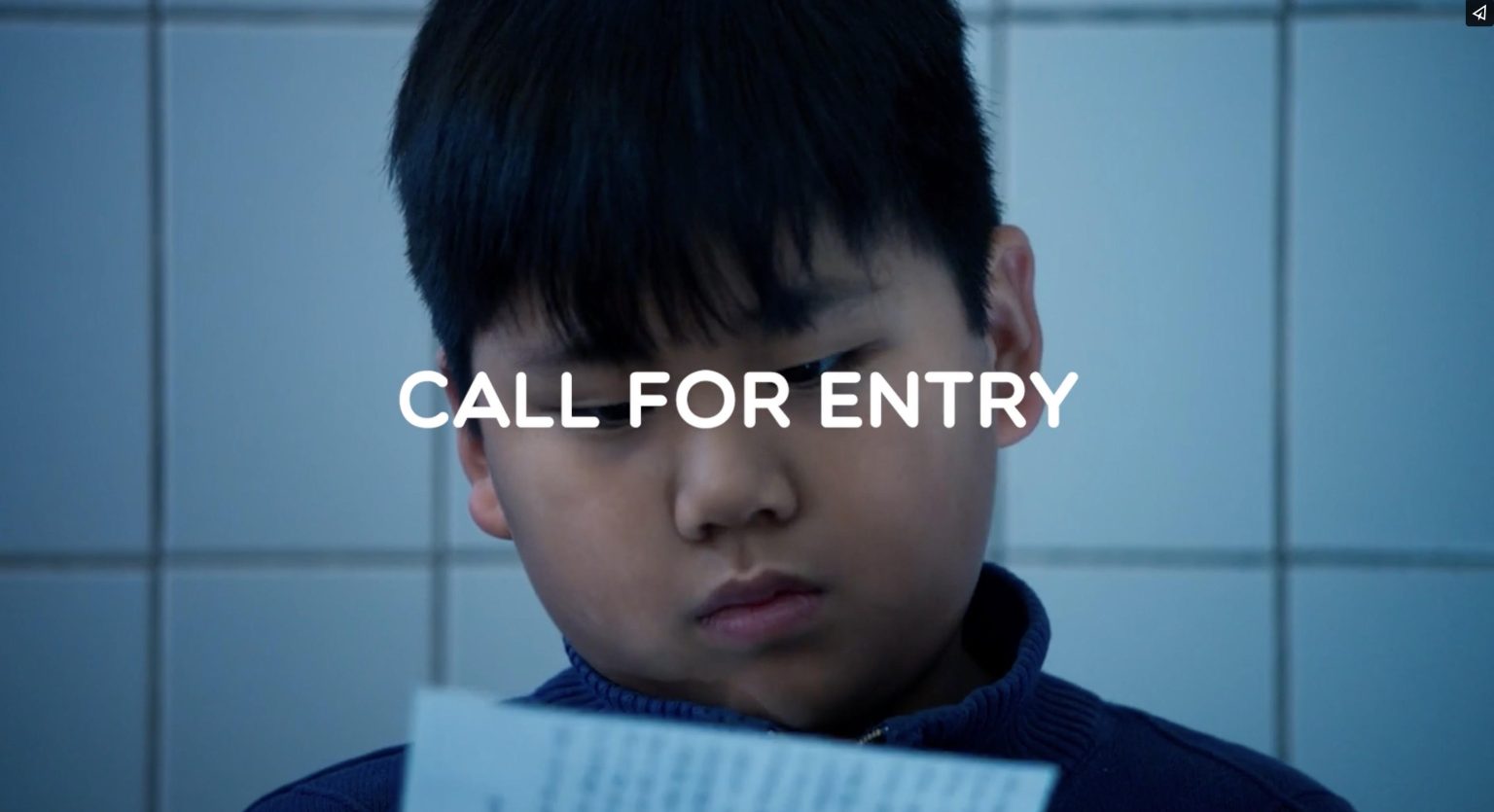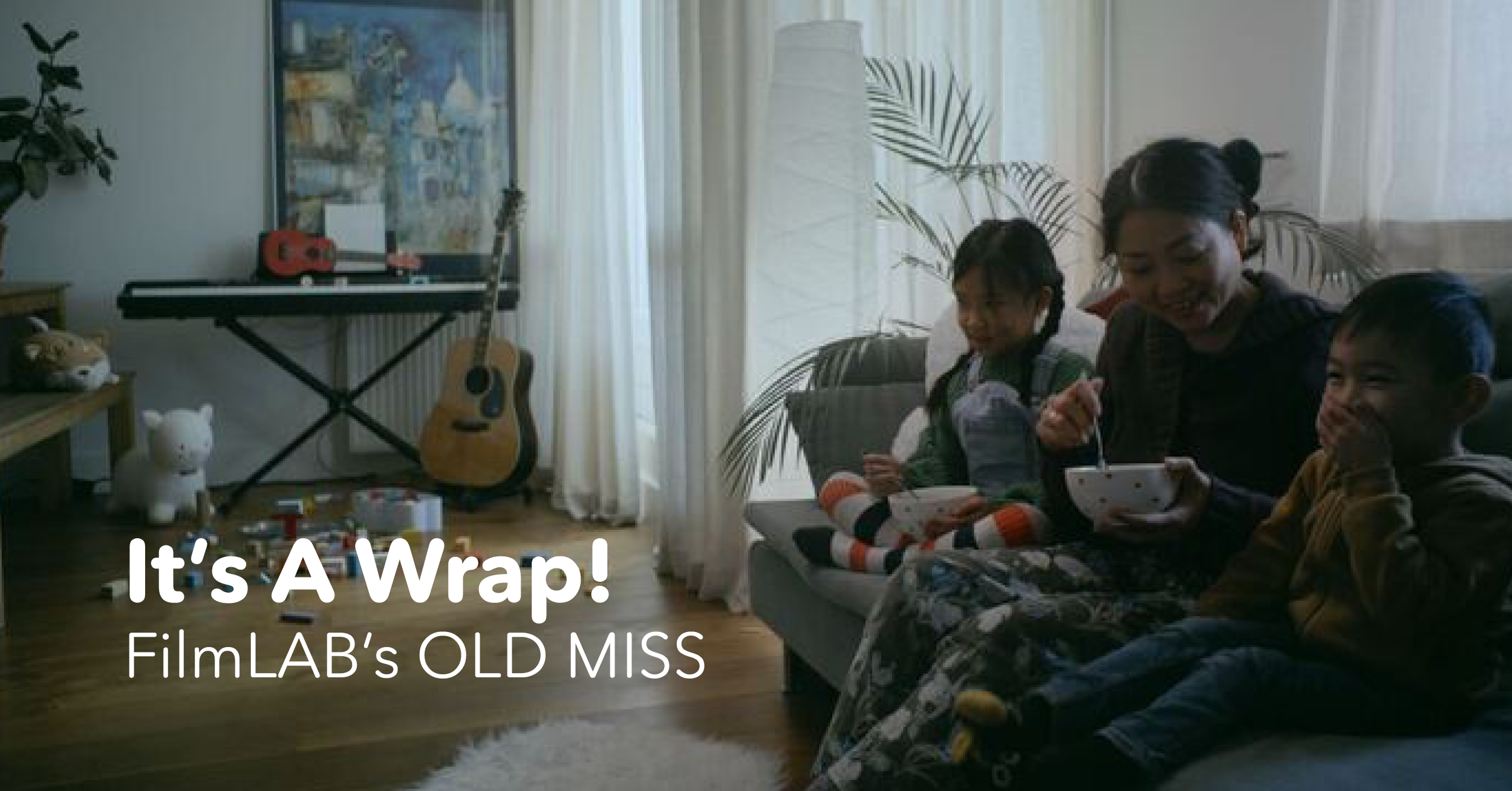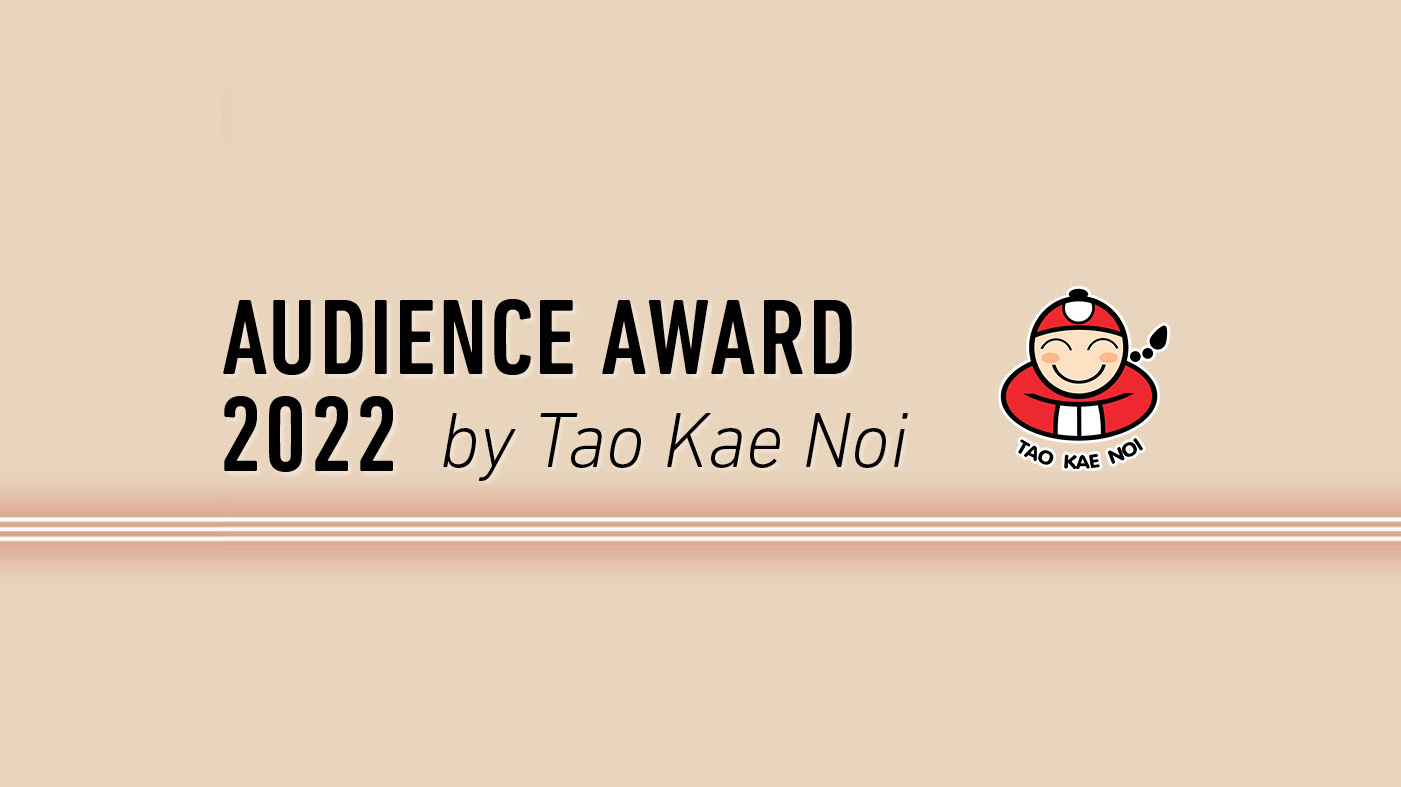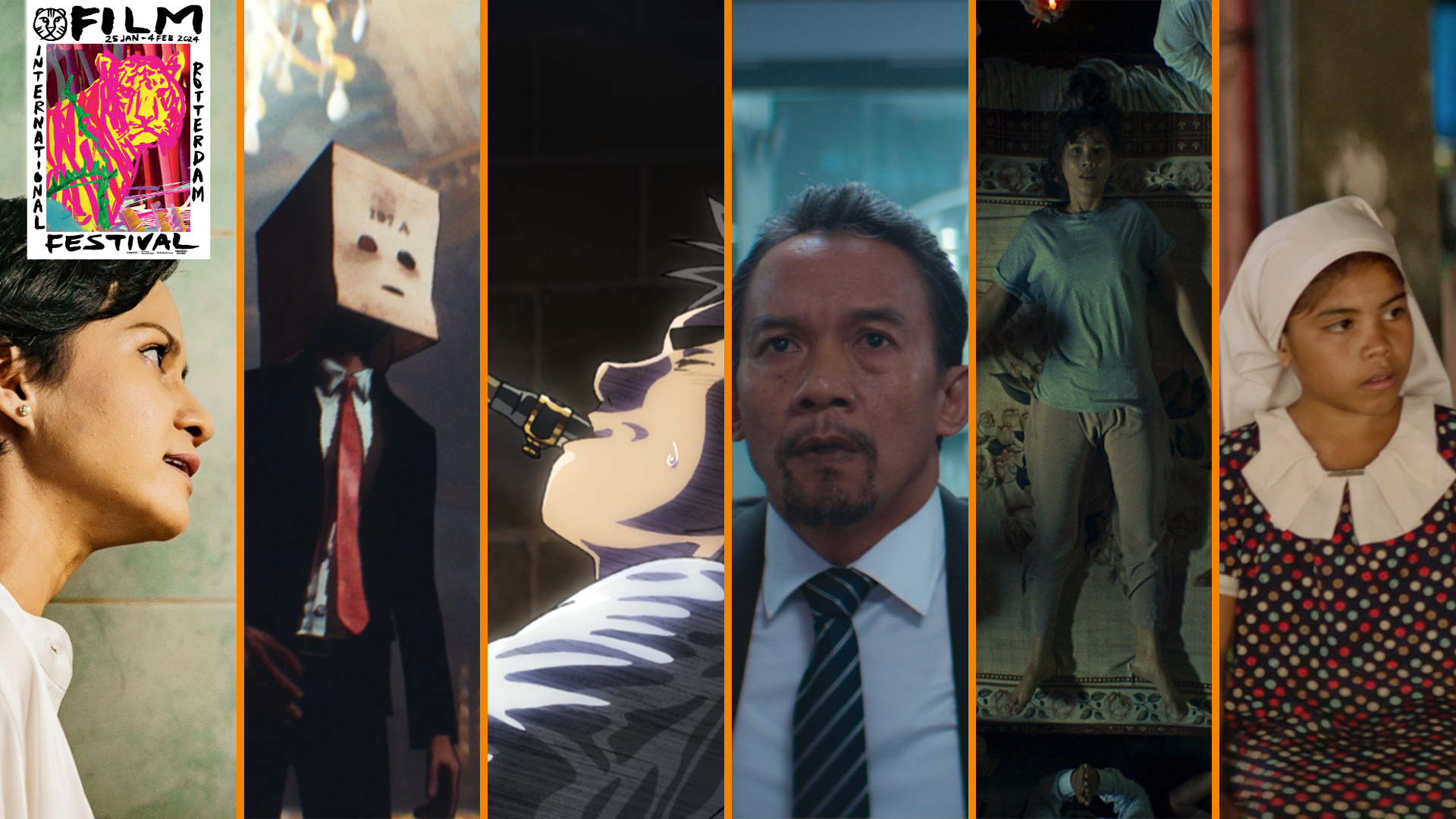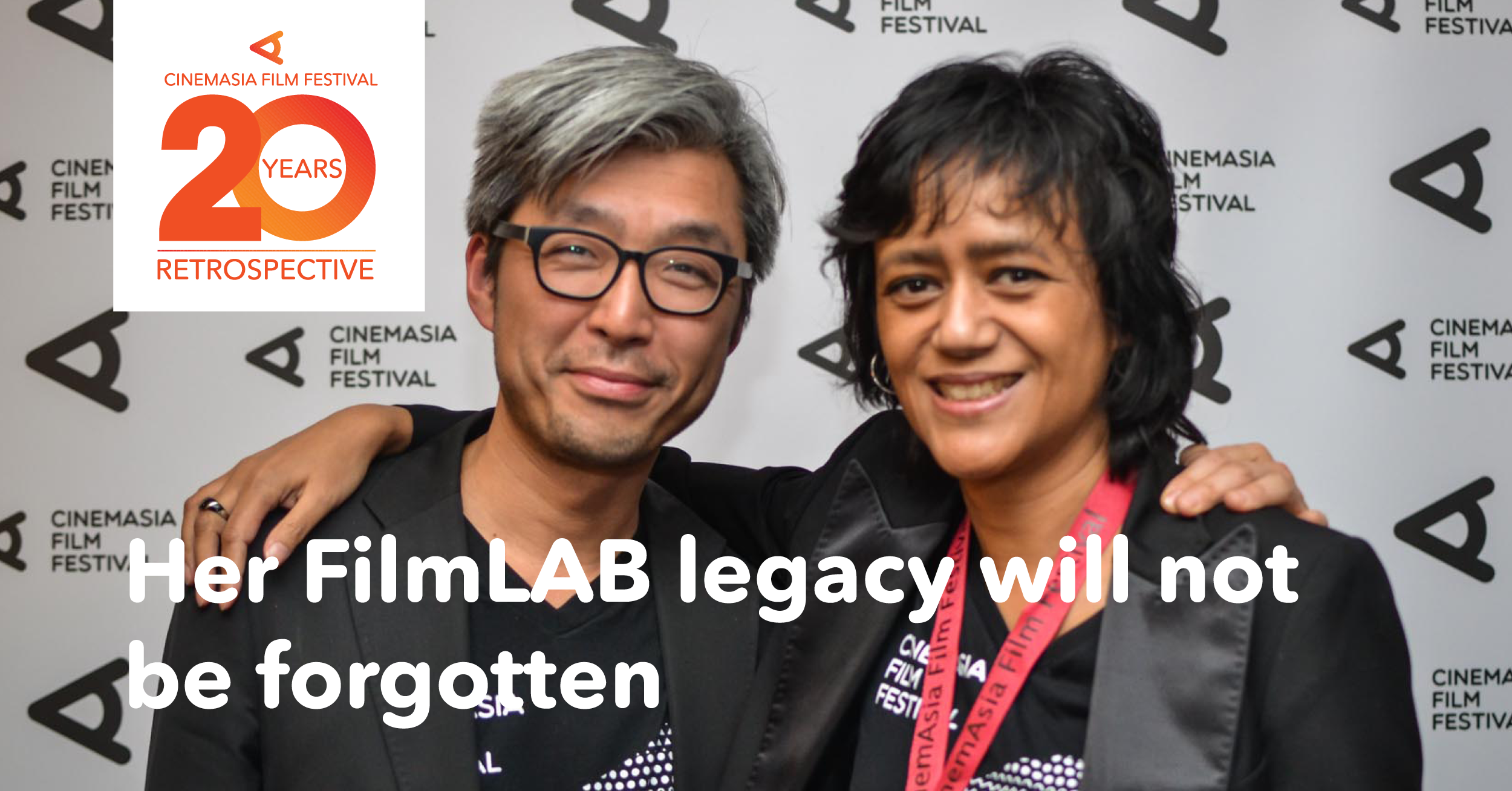
CinemAsia FilmLAB rewind
We travel back in time as we look back on CinemAsia FilmLAB throughout the years. The program started in 2006, initiated by the founder of CinemAsia Film Festival Doris Yeung. She realized that screening films from the Asian continent in the Netherlands wouldn’t suffice to reach CinemAsia’s mission to create better and more diverse representation of people with an Asian background within the Netherlands. Through CinemAsia FilmLAB she wanted to give young Asian talent the opportunity to make their own stories into films and to see their realities reflected on screen. Each FilmLAB edition filmmakers were selected and given a small budget to make a documentary or fiction short film that premiered at the festival. So far, CinemAsia FilmLAB has produced 38 short films, screened CinemAsia FilmLAB shorts on more than 112 occasions, at 25 festivals worldwide and in more than 12 different countries.
In 2008 Judith Mulder joined as FilmLAB producer and helped expand the program, by bringing in new experts, sponsorship partners and organizing more meetups. Judith, later joined by Daan Vree and Jimmy Tai, continued to develop FilmLAB for a decade, eventually passing on the baton to FilmLAB producers Martijn van Veen and Genny van ‘t Veer in 2017. 2019 marks the year that FilmLAB expanded its ambitions to include the FilmLAB Alumni Network with its own activities and focus to benefit its alumni. However, 2019 is also the year CinemAsia lost the very beloved Judith Mulder, who sadly passed away. Her FilmLAB legacy will not be forgotten and because of her decade of hard work together with the FilmLAB team, many Asian stories found their way to the screen, leaving behind history to look back on.
Daan Vree: “Inspired by one of the FilmLAB screenings I attended, I initially joined FilmLAB as a participant in 2012 and created my film ADOPTED about an Asian couple that adopts a white baby. In 2018, I made my second film HANGUL BLUES, about an adopted girl who tries to learn Korean to communicate with her biological mother. In the years in between my own films I worked for the festival. In 2013, CinemAsia asked me to become one of the programmers of the festival. I worked as head of programming for a while and eventually, Judith asked me to help with FilmLAB as a producer. We worked together for 5 years, producing 12 films.
The experience both as a filmmaker and producer taught me a lot. As a filmmaker I learned how to make a film under pressure. Because at that time you needed to write the script, find a cast and crew, shoot the film, edit, and make the film ready for its premier at the festival in just 5 weeks. As a producer, I got to know the production side of filmmaking, how to think of a theme, select scripts, and guide the film process from beginning to end. Over time we started to work together with more partners, such as Camalot for camera equipment and partners that, for instance, offered color grading or could prepare the DCP (Digital Cinema Package) for the theaters. FilmLAB became part of a more professional workflow and the whole beginning idea of making a film in 5 or 6 weeks, became much longer. At some point, it even turned into a half year process. However, one thing remained the same: we wanted to stimulate people with an Asian background to tell their stories. It is CinemAsia’s mission in general to represent Asian stories through film and encourage people to share them.
In the case of FilmLAB this specifically meant focusing on Asian Diasporic stories. In 2014, for example, we selected Bunda di Rumah, a project by Raoul Groothuizen. It was a story about a Moluccan mother who reunites with her two sons to reconcile despite their differences, 11 years after the train hijacking of 1977. It was a beautiful story, with an important theme and interesting script. Overall, an important story that gives another perspective on the subject. It is interesting to see how people who have been involved in FilmLAB in one way or another, either behind the scenes or in front of the camera, continue to tell their stories and move on to new productions. Raoul, for instance, is the screenwriter of a new film that was recently released called Pulang. A Moluccan story of which Martin Schwab, who used to be my mentor during my first film, is the director. In that way Asian Diasporic stories have conquered their spot. Ofcourse, there are still steps left to take and things to improve on in terms of representation, but we are heading in the right direction.
For me, CinemAsia holds a lot of beautiful memories. It has always been about much more than just working for the festival. It is about getting to know new people and this feeling of family. Two words that come to mind when I think of CinemAsia are family and celebration. It is nice to see how CinemAsia unites such a diverse group of people, who get to enjoy films together but also participate in a lot of side-programming. It has always been about more than just film.”
Filmmaker Jimmy Tai, similar to Daan Vree, joined FilmLAB as a participant first and later strengthened the FilmLAB team as a mentor from 2014 -2017. Throughout the years, Jimmy Tai has worked on many major Dutch productions, including CinemAsia´s opening film of this year HAPPY PALACE, for which he was the assistant director. But he also worked on productions such as New Kids Nitro, S1ngle and Misfit. As a participant in FilmLAB he directed two films: PING in 2006, about Ping who only wants one thing: a Transformer, and FATHER & SON in 2018, about a father and son who need to find a new way to communicate and understand each other after the mother passed away.
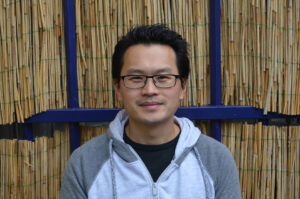
Jimmy Tai: “As a Chinese filmmaker, I feel really connected to CinemAsia. When I participated in the first edition of FilmLAB in 2006, it felt like one and one is two. CinemAsia supports the type of films I like to make and watch. In the very beginning everything was still new to me. It was really fun and exciting to make something for a festival like CinemAsia. When I was asked as a mentor, it felt like an honor to pass my knowledge on and help new filmmakers with their stories and film projects. I enjoyed seeing Asian diasporic stories about someone who grows up in two different cultures come to life, each time in a different form or told in a different way.
I feel like the FilmLAB films can be characterized as very personal. They are films about oneself, family and our own lived experience. About coming from a different cultural background, living in a western country such as the Netherlands and the cultural differences it brings. This personal element and our human experience expressed through film, is something I find very beautiful. To me, each FilmLAB film is special. There is not just one that specifically stood out to me. It might sound a bit cliché, but every film has its own special quality, something that makes it different and unique. No film is the same. But in these diverse experiences and stories, there is always something to which all of us can relate.
Through FilmLAB and CinemAsia, I got to know a great network of people. I look forward to seeing them at the festival each year and to experience together what we miss in our daily lives on TV and in cinemas. Though, we’ve seen some positive changes in the last two years. The popular American productions with lots of Asian names help in terms of visibility. I am always happy to see new productions by the Asian community, especially in the Netherlands.”
In 2020 Helen Tsang and Terry Tao proceeded with the FilmLAB production. And for this year’s FilmLAB, another Dutch Asian Diasporic production can be added to the list. The short film OLD MISS by director and writer Chinh Van Tran, tells the story of Miss, a Vietnamese nanny living in the Netherlands, looking after two Vietnamese children. When she learns that her service for the family is no longer needed, she has to decide how to say goodbye to the little children she has taken care of for all their lives. This film will experience its world premiere at the festival in March.
Author: Aubrey van Leeuwen

